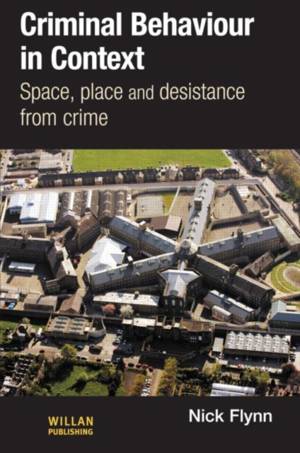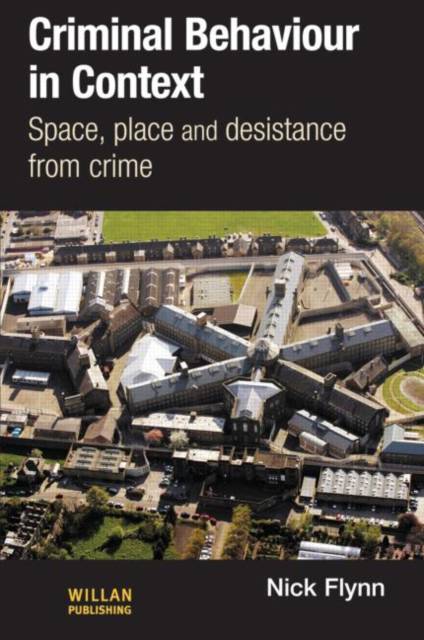
Bedankt voor het vertrouwen het afgelopen jaar! Om jou te bedanken bieden we GRATIS verzending (in België) aan op alles gedurende de hele maand januari.
- Afhalen na 1 uur in een winkel met voorraad
- Gratis thuislevering in België vanaf € 30
- Ruim aanbod met 7 miljoen producten
Bedankt voor het vertrouwen het afgelopen jaar! Om jou te bedanken bieden we GRATIS verzending (in België) aan op alles gedurende de hele maand januari.
- Afhalen na 1 uur in een winkel met voorraad
- Gratis thuislevering in België vanaf € 30
- Ruim aanbod met 7 miljoen producten
Zoeken
€ 305,45
+ 610 punten
Omschrijving
This book examines the extent to which criminal desistance - 'the change process involved in the ending of criminal behaviour' - is affected by personal and social circumstances which are place specific. Grounded in criminological spatial analysis, as well as more general social scientific investigations of the role of space and place in contemporary social, economic and cultural life, it examines why large numbers of prisoners in the United States and the United Kingdom appear to be drawn from - and after release return to - certain urban neighbourhoods.
In doing so Criminal Behaviour in Context assesses the effect of this unique life course experience on the pathways and choices open to ex-prisoners who attempt to give up crime. Including new data on the geographical distribution of offenders, interviews with serving prisoners, and drawing on theories about social context, identity and subjectivity, it discusses the implications of the evidence and arguments presented for prisoner reintegration policy and practice.Specificaties
Betrokkenen
- Auteur(s):
- Uitgeverij:
Inhoud
- Aantal bladzijden:
- 302
- Taal:
- Engels
- Reeks:
Eigenschappen
- Productcode (EAN):
- 9781843928119
- Verschijningsdatum:
- 10/08/2010
- Uitvoering:
- Hardcover
- Formaat:
- Genaaid
- Afmetingen:
- 160 mm x 236 mm
- Gewicht:
- 657 g

Alleen bij Standaard Boekhandel
+ 610 punten op je klantenkaart van Standaard Boekhandel
Beoordelingen
We publiceren alleen reviews die voldoen aan de voorwaarden voor reviews. Bekijk onze voorwaarden voor reviews.









